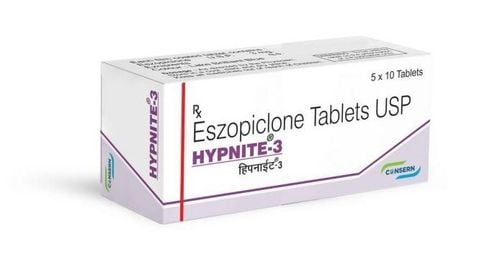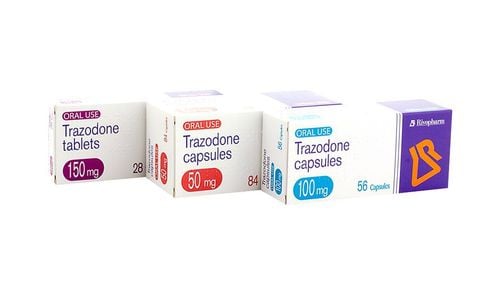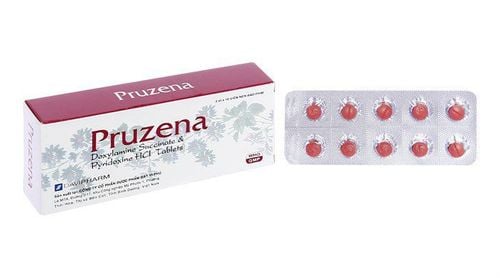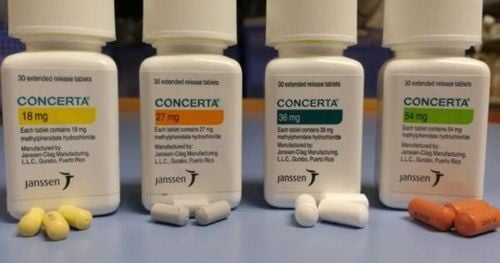This is an automatically translated article.
Sleep is very important for health. However, currently, insomnia is gradually becoming common, if not treated, it will seriously affect health as well as daily life. A number of alternative and remedial treatments for insomnia such as acupuncture, relaxation, meditation, mindfulness, exercise, etc. can be applied.1. What is alternative therapy?
Replacement therapy covers a wide range of rules from diet and exercise to mental conditioning and lifestyle changes. Examples of alternative therapies for insomnia include acupuncture, yoga, hypnosis, biofeedback, aromatherapy, relaxation, herbal therapies, massage and more. other. Complementary medicine is essentially an alternative medicine that is taken alongside conventional treatments.Sleep plays a very important role in health and in life, sleep helps people to rest after periods of work and study. Insomnia is a common sleep disorder that can include difficulty falling asleep, staying asleep, waking up too early, not being able to go back to sleep, and possibly feeling tired upon waking.
Insomnia can cause fatigue, irritability and seriously affect work performance as well as quality of life. Therefore, in addition to using treatment regimens, doctors can advise on suitable alternative therapies to improve insomnia.
SEE ALSO: Acupressure massage to treat insomnia
2. Alternative therapies and remedies for insomnia
2.1 Herbs Herbal supplements thought to help treat insomnia include:Valerian root: Some studies have suggested that valerian root (Valeriana officinalis) may help initiate and Maintain effective sleep. However, more research is still needed before final conclusions can be drawn about the safety and effectiveness of valerian for insomnia. In fact, this plant can interfere with some medications, and they also have side effects and are not safe in young children or in women to use during pregnancy. Chamomile: This is an herb commonly used to treat insomnia. However, more research is needed to see if it works. The U.S. Food and Drug Administration (FDA) considers chamomile to be a safe herb with no known side effects. However, you should not use this flower if you are sensitive to ragweed or other members of the Compositae family such as daisies or sunflowers. You can develop a contact allergy if you do. Other Herbs: Herbs touted as effective insomnia remedies include passionflower, hops, and lemon basil. However, these plants still need to be studied to determine their safety and effectiveness.

Hoa cúc là loại thảo mộc thường được sử dụng để điều trị chứng mất ngủ
2.2 Melatonin Melatonin is a hormone produced by the pineal gland inside the brain in humans and produced in animals as well as plants. Although the effects of melatonin are complex and poorly understood, they play an important role in regulating the sleep-wake cycle and other circadian rhythms.
Melatonin has been studied as a treatment for circadian rhythm disorders and may be helpful in reducing sleep disturbances caused by jet lag. Accordingly, melatonin needs to be taken at the right time of day with the right dose to be effective, but how much is not recommended. The amount of melatonin in over-the-counter supplements can raise levels in the body up to 20 times normal. Harmful effects of melatonin are few, but long-term studies examining the effectiveness and toxicity of melatonin supplements are needed.
2.3 Acupuncture Acupuncture is commonly used in Traditional Chinese Medicine to treat insomnia. This procedure is performed by inserting very fine needles into the skin at acupuncture points to influence the body's activities, sometimes in combination with electrical stimulation or with the generated heat, by burning herbs. carpentry.
Results of recent studies have shown that acupuncture improves sleep quality in patients with this condition. However, additional research is needed before the effectiveness of acupuncture is definitively proven in reducing insomnia.
MORE: How to improve insomnia?

Châm cứu có thể cải thiện chất lượng giấc ngủ
Increasing evidence supports the positive value of meditation in the treatment of insomnia. Some research shows that regular practice of yoga can also help with insomnia, because it boosts blood levels of melatonin, an important regulator of sleep.
2.5 Exercise Regular exercise helps induce deeper sleep in young people with or without a sleep disorder. Additionally, some studies suggest that exercise can improve sleep in older adults. Recent studies show that low-to-moderate Tai Chi and yoga exercises are effective, helping to improve sleep quality in the elderly and cancer patients with problems. about sleep. Although consistent exercise has been shown to improve sleep quality, most experts recommend exercising at least three to four hours before bed to avoid affecting sleep.
3. Points to note about alternative therapy
Alternative therapies are not approved by the FDA and are not always benign. By definition, alternative therapies are generally not accepted as standard of care in the United States. As mentioned, some herbal therapies may interact with other medications you are taking. . Consider the following points before starting replacement therapy.Always consult your doctor before trying an alternative and remember to share all the alternative treatments you are using.

Hãy hỏi ý kiến bác sĩ nếu bạn định sử dụng thảo mộc điều trị chứng mất ngủ
Please dial HOTLINE for more information or register for an appointment HERE. Download MyVinmec app to make appointments faster and to manage your bookings easily.
Reference source: webmd.com












